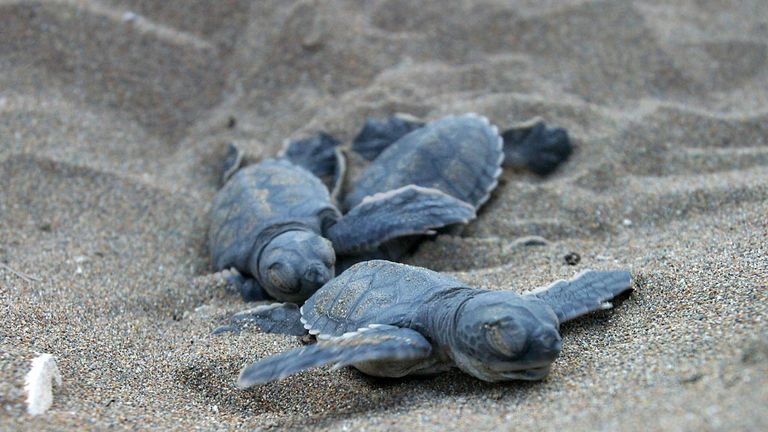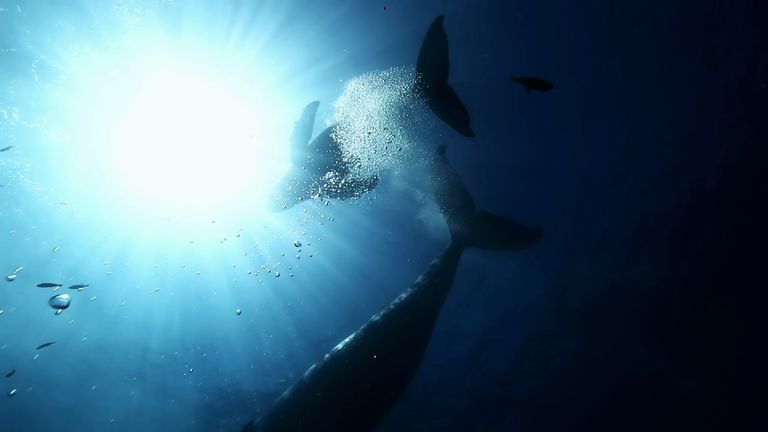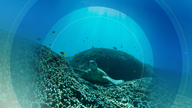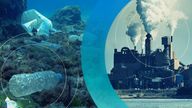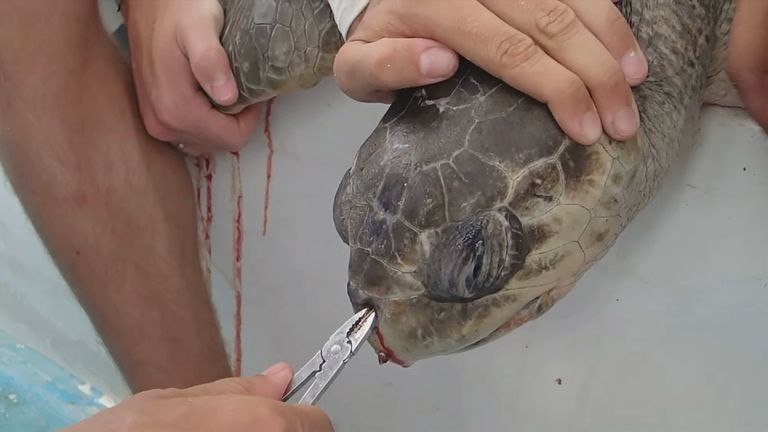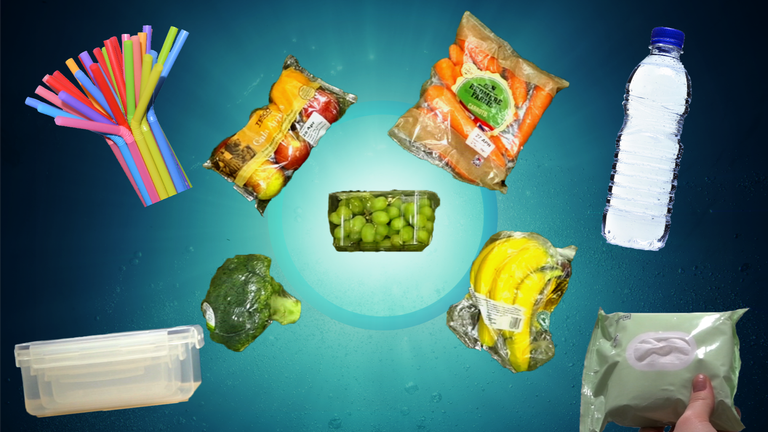Mediterranean Sea 'trashed' by plastic waste
Holidaymakers swim in debris as sea life, including turtles, ingest bags and straws - some of 3,000 tons of waste in the Med.
Wednesday 20 September 2017 15:07, UK
The Mediterranean - Europe's summer playground - is being trashed by accumulating plastic waste.
Research suggests about 3,000 tons of the material is floating on the surface, with more added every year. And because the sea is almost fully enclosed the plastic is trapped - taking decades to break down.
Not only are tourists swimming in the debris, marine creatures are mistaking it for food.
Scientists at the Society for the Protection of Turtles in Northern Cyprus are watching the plastic tide with alarm.
Post-mortems on dead turtles have identified fragments inside their stomachs.
Robin Snape, project co-ordinator for the group, said: "In the green turtle it's really common. The vast majority of them have some plastic in their gastro-intestinal tract. It's more than 90%."
The conservationists took us to a bay on the Karpaz Peninsula, close to one of the most important nesting beaches for the endangered green turtle.
We saw plastic packaging, straws and sheeting piled into large drifts along the high tide line.
Labels suggested some of the plastic had been swept by the wind and current from as far away as Turkey, Lebanon and North Africa.
:: Documentary: Plastic pollution in our oceans
Tierney Chalmers, a student volunteer at the society, has been helping monitor plastic on the beach.
She said: "Jellyfish look like plastic bags, bottle tops can look like crustaceans.
"It's awful because it means turtles and other animals eat it and it's passed down the food chain."
Tests are being carried out on dead turtles for any toxic chemicals that could accumulate in body tissues.
It's an added potential threat to a population that already has a high mortality rate from fishing nets. So many turtles around Cyprus become entangled and drown that few survive to adulthood.
Münur Hasimoglu, who has fished off the northern coast for 40 years, said he catches three to four turtles a month by accident. Not all die.
"I feel sorry," he said. "It's a species that has really declined. But there is little we can do about it."
Conservationists are attempting to compensate for the deaths by protecting nesting sites.
Dogs and foxes dig up freshly laid eggs, sometimes eating a clutch of 100 or more.
But by putting wire mesh over the nest, the eggs are protected so more turtles hatch and reach the sea.
As a result, the local population of green turtles is beginning to increase.
But the plastic in the sea has unknown consequences for the turtles. And that's a problem the project volunteers can't solve on their own.
